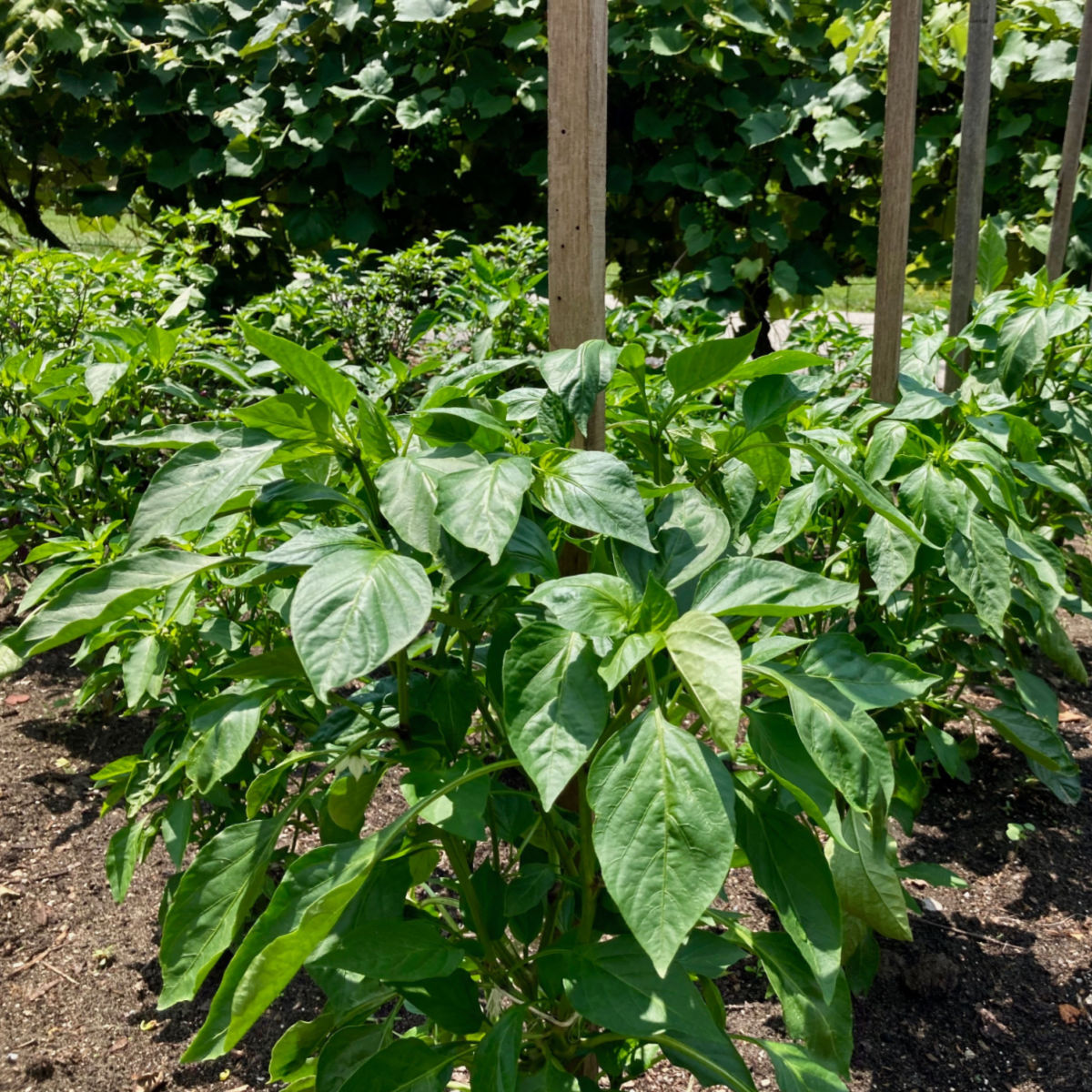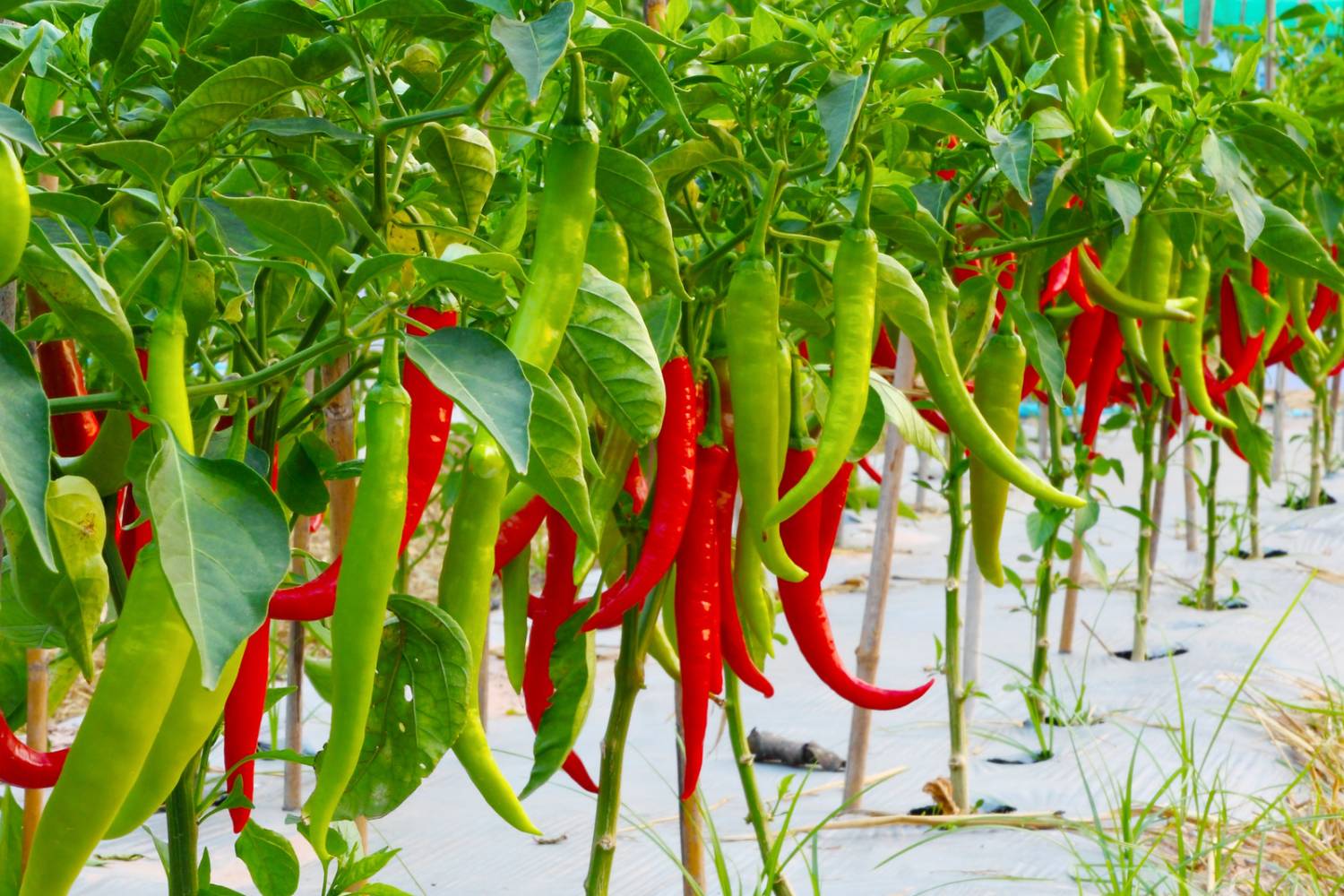Organic Vs. Synthetic Fertilizers: Which Is Best for Nurturing Healthy And Balanced Pepper Plants?
In the realm of nurturing healthy and balanced pepper plants, the option in between artificial and organic fertilizers stands as an essential choice with significant effects. While both options purpose to provide crucial nutrients to sustain plant development, the nuances of their influence on the soil, plant health and wellness, and the setting spark a debate that mirrors throughout the gardening community. Recognizing the distinctive advantages and potential challenges of each plant food kind is important for pepper cultivators looking for to enhance their returns while keeping a lasting and eco-conscious approach.
Advantages of Organic Plant Foods
Organic plant foods supply a sustainable and environmentally-friendly strategy to nourishing pepper plants, giving vital nutrients without using synthetic chemicals. These natural plant foods are originated from natural resources such as compost, manure, bone meal, and seaweed, advertising dirt health and biodiversity. Unlike synthetic plant foods, natural options launch nutrients gradually, making certain a balanced and steady supply for pepper plants to prosper.
One significant advantage of natural plant foods is their capacity to boost dirt framework and water retention. By boosting soil health, natural plant foods promote useful microbial activity, which assists in nutrient uptake by pepper plants. Furthermore, organic plant foods decrease the threat of chemical run-off, securing water sources from air pollution and guarding the atmosphere.
Furthermore, natural fertilizers add to long-lasting dirt fertility by promoting the development of advantageous soil organisms. These organisms help break down natural issue, releasing nutrients in a kind that is conveniently accessible to pepper plants. best fertilizers for peppers. By promoting a healthy and balanced soil ecosystem, organic plant foods support lasting pepper farming practices that benefit both plants and the environment
Drawbacks of Synthetic Plant Foods
Synthetic plant foods, unlike their natural counterparts, pose numerous negative aspects when made use of to nourish pepper plants, affecting both plant health and environmental sustainability. One major drawback of synthetic plant foods is their propensity to leach nutrients from the dirt quickly. This fast leaching can bring about nutrient discrepancies in the dirt, triggering plants to deal with toxicities or shortages. In addition, synthetic fertilizers can hurt useful soil organisms, such as earthworms and useful bacteria, disrupting the dirt ecological community's balance.
Furthermore, the overuse of synthetic plant foods can add to water contamination. Excess fertilizers not soaked up by plants can remove into water bodies, causing eutrophication, where algae flowers deplete oxygen degrees in the water, harming marine life. Synthetic plant foods are normally acquired from non-renewable sources, such as fossil fuels, adding to carbon emissions and ecological degradation during their production.
Nutrient Absorption Contrast
Reliable nutrient absorption plays a critical function in the overall wellness and development of pepper plants. When contrasting artificial and natural plant foods in regards to nutrient absorption, natural fertilizers have the advantage of offering a much more well balanced and slow-release source of nutrients (best fertilizers for peppers). Organic plant foods have blog here a variety of macro and micronutrients that are not just valuable for the plants but also promote healthy and balanced dirt microbial task, which helps in nutrient uptake. On the other hand, synthetic plant foods typically offer a fast launch of nutrients, which can cause seeping and runoff, causing reduced nutrient absorption prices by the plants.
In addition, organic fertilizers enhance dirt framework and water retention capability, allowing pepper plants to accessibility nutrients a lot more effectively. This improved dirt quality promotes root advancement, allowing better nutrient absorption. Synthetic fertilizers, although initially boosting plant development due to their high nutrient focus, may hinder lasting nutrient absorption by degrading dirt health over time.
Environmental Impact Considerations

On the other hand, synthetic plant foods, although often more quickly offered and focused to plants, can have detrimental impacts on the setting otherwise applied effectively (best fertilizers for peppers). Their production requires high energy inputs, causing greenhouse gas discharges and adding to environment modification. The runoff of excess artificial plant foods can contaminate water sources, leading to eutrophication and damaging aquatic environments.
Finest Plant Food Practices for Peppers
When feeding pepper plants, maximizing nutrient uptake and lessening environmental effect are crucial factors to consider. To attain this, it is necessary to comply with ideal plant food techniques customized to the specific demands of pepper plants. One vital practice is to execute a dirt test prior to applying any kind of fertilizers. This test can figure out the pH level of the soil and identify any kind of this hyperlink nutrient deficiencies, guiding you in selecting one of the most suitable plant food formulation.
One more vital method is to feed pepper plants at the right time. Commonly, peppers take advantage of receiving fertilizer at planting and after that once more when they start to flower. Over-fertilizing can lead to vitamins and mineral discrepancies and damage the plants, so it is important to comply with advised application rates.
Additionally, picking a balanced plant food with an NPK proportion that suits pepper plants' requirements is basic. Eventually, combining synthetic and natural plant foods deliberately can aid nurture healthy and balanced pepper plants while decreasing environmental impact.
Conclusion

Organic fertilizers supply an environmentally-friendly and sustainable approach to beneficial pepper plants, offering important nutrients without the usage of synthetic chemicals. Unlike artificial fertilizers, organic alternatives release nutrients gradually, guaranteeing a steady and well balanced supply for pepper plants to thrive.
Artificial fertilizers, in comparison to their natural counterparts, pose various disadvantages when made use of to nurture pepper plants, impacting both plant wellness and environmental sustainability. When comparing artificial and organic fertilizers in terms of nutrient absorption, natural fertilizers have the advantage of offering an extra balanced and slow-release source of nutrients.Furthermore, natural fertilizers enhance soil structure and water retention ability, allowing pepper plants to accessibility nutrients a lot more successfully.